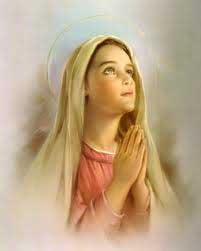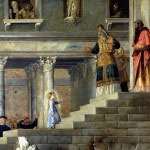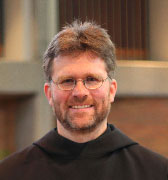 Episode 9- Â The Holy Rule of St. Benedict: A Spiritual Path for Today’s World with Fr. Mauritius Wilde O.S.B., PhD.
Episode 9- Â The Holy Rule of St. Benedict: A Spiritual Path for Today’s World with Fr. Mauritius Wilde O.S.B., PhD.
In place of idleness, work
[powerpress]
From the Holy Rule of St. Benedict:
CHAPTER XLVIII
Of the Daily Work
Idleness is the enemy of the soul; and therefore the brethren ought to be employed in manual labor at certain times, at others, in devout reading. Hence, we believe that the time for each will be properly ordered by the following arrangement; namely, that from Easter till the calends of October, they go out in the morning from the first till about the fourth hour, to do the necessary work, but that from the fourth till about the sixth hour they devote to reading. After the sixth hour, however, when they have risen from table, let them rest in their beds in complete silence; or if, perhaps, anyone desireth to read for himself, let him so read that he doth not disturb others. Let None be said somewhat earlier, about the middle of the eighth hour; and then let them work again at what is necessary until Vespers.
If, however, the needs of the place, or poverty should require that they do the work of gathering the harvest themselves, let them not be downcast, for then are they monks in truth, if they live by the work of their hands, as did also our forefathers and the Apostles. However, on account of the faint-hearted let all things be done with moderation.
From the calends of October till the beginning of Lent, let them apply themselves to reading until the second hour complete. At the second hour let Tierce be said, and then let all be employed in the work which hath been assigned to them till the ninth hour. When, however, the first signal for the hour of None hath been given, let each one leave off from work and be ready when the second signal shall strike. But after their repast let them devote themselves to reading or the psalms.
During the Lenten season let them be employed in reading from morning until the third hour, and till the tenth hour let them do the work which is imposed on them. During these days of Lent let all received books from the library, and let them read them through in order. These books are to be given out at the beginning of the Lenten season.
Above all, let one or two of the seniors be appointed to go about the monastery during the time that the brethren devote to reading and take notice, lest perhaps a slothful brother be found who giveth himself up to idleness or vain talk, and doth not attend to his reading, and is unprofitable, not only to himself, but disturbeth also others. If such a one be found (which God forbid), let him be punished once and again. If he doth not amend, let him come under the correction of the Rule in such a way that others may fear. And let not brother join brother at undue times.
On Sunday also let all devote themselves to reading, except those who are appointed to the various functions. But if anyone should be so careless and slothful that he will not or cannot meditate or read, let some work be given him to do, that he may not be idle.
Let such work or charge be given to the weak and the sickly brethren, that they are neither idle, nor so wearied with the strain of work that they are driven away. Their weakness must be taken into account by the Abbot.
Father Mauritius Wilde, OSB, Ph.D., did his philosophical, theological and doctoral studies in Europe. He is the author of several books and directs retreats regularly. He serves as Prior of our monastery in Schuyler.
 For more information about the ministry of the the Missionary Benedictines of Christ the King Priory in Schuyler, Nebraska visit here:
For more information about the ministry of the the Missionary Benedictines of Christ the King Priory in Schuyler, Nebraska visit here:
Tags: Daily Work, silence, truth, work
This entry was posted on Tuesday, October 29th, 2013 at 10:51 am
You can follow any responses to this entry through the RSS 2.0 feed.
Episode 6 -The Way of Mystery: The Eucharist and Moral Living– The Penitential Rite part 2 Are we afraid of silence, being alone with God, posture, and The domestic church.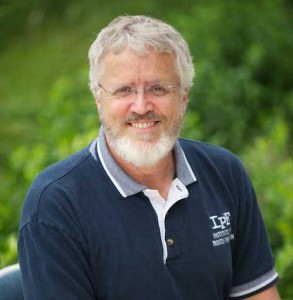
[powerpress]
Deacon James Keating, PhD, the director of Theological Formation for the Institute for Priestly Formation, located at Creighton University, in Omaha, is making available to â€Discerning Hearts†and all who listen, his series of programs entitled “The Way of Mysteryâ€.
 The Vatican II documents remind us that the spiritual journey is not made in a vacuum, that God has chosen to save us, not individually, but as The People of God. The Eucharist must help Christians to make their choices by discerning out of Christ’s paschal mystery. For this process to take place, however, Christians must first understand how the Eucharist puts them in touch with Christ’s passion, death, and resurrection, and what concrete implications being in touch with this mystery has for their daily lives.
The Vatican II documents remind us that the spiritual journey is not made in a vacuum, that God has chosen to save us, not individually, but as The People of God. The Eucharist must help Christians to make their choices by discerning out of Christ’s paschal mystery. For this process to take place, however, Christians must first understand how the Eucharist puts them in touch with Christ’s passion, death, and resurrection, and what concrete implications being in touch with this mystery has for their daily lives.
For more information on the “Institute of Priestly Formation†and for other material available by Deacon Keating, just click here
Don’t forget to pickup a copy of “Communion with Christ†, it is one of the best audio sets on prayer…ever!
Check out Deacon Keating’s “Discerning Heart†page
Tags: choices, creighton university, Deacon James Keating, silence
This entry was posted on Monday, November 5th, 2012 at 1:32 pm
You can follow any responses to this entry through the RSS 2.0 feed.
I love this feast day of the Blessed Virgin Mary!!!
The Presentation of the Blessed Virgin Mary (as it is known in the West), or The Entry of the Most Holy Theotokos into the Temple (its name in the East), is a liturgical feast celebrated by the Roman Catholic and Orthodox Churches.
wiki - The feast is associated with an event recounted not in the New Testament, but in the apocryphal
Infancy Narrative of James. According to that text, Mary’s parents, Joachim and Anne, who had been childless, received a heavenly message that they would bear a child. In thanksgiving for the gift of their daughter, they brought her, when still a child, to the Temple in Jerusalem to consecrate her to God. Mary remained in the Temple until puberty, at which point she was assigned to Joseph as guardian. Later versions of the story (such as the Gospel of Pseudo-Matthew and the Gospel of the Nativity of Mary) tell us that Mary was taken to the Temple at around the age of three in fulfillment of a vow.
The feast originated as a result of the dedication of the Basilica of Saint Mary the New, built in the year 543 by the Byzantines under Emperor Justinian I near the site of the ruined Temple in Jerusalem. Although this
basilica was destroyed by the Sassanid Persians under Khosrau II after the Siege of Jerusalem (614), the feast continued to be celebrated throughout the East. The feast was celebrated in the monasteries of Southern Italy by the ninth century and was later introduced into the Papal Chapel in Avignon in the year 1372 by a decree of Pope Gregory XI. Â It was included in the Roman Missal in 1472. But, as the fact of the “Presentation of the Blessed Virgin Mary” is only a pious belief, but not a defined matter of faith, it was suppressed by Pope Pius V in 1568. Â As a result, it did not appear in the Tridentine Calendar. Pope Sixtus V reintroduced it into the Roman Calendar in 1585. Pope Clement VIII made this feast a Greater Double in 1597. The
feast also continued as a memorial in the Roman Calendar of 1969.
Entry of the Most Holy Theotokos into the Temple (Russian icon, 16th century).The Eastern Orthodox Church celebrates it as one of its twelve Great Feasts on November 21 (for those churches which follow the Julian Calendar, November 21 falls on December 4 of the modern Gregorian Calendar). The first documented celebration of the feast in any calendar is the mention of the Εἴσοδος τῆς Παναγίας Θεοτόκου (Entry of the All-Holy Theotokos – i.e. into the Temple) in the 11th-century Menology of the Eastern Roman (also known as Byzantine) emperor Basil II. In the Orthodox Church the feast always falls during the Nativity Fast, and on the day of the feast the fasting rules are lessened somewhat so that fish, wine and oil may be eaten.
For the Roman Catholic Church, on the day of the Presentation of the Blessed Virgin Mary, “we celebrate that dedication of herself which Mary made to God from her very childhood under the inspiration of the Holy Spirit who filled her with grace at her Immaculate Conception.”
November 21 is also a “Pro Orantibus” Day, a day of prayer for cloistered religious “totally dedicated to God in prayer, silence and concealment.”
The Presentation in art
Western depictions usually focused on the lone figure of the young Mary climbing the steep steps of the Temple, having left her parents at the bottom, and climbing towards the Chief Priest and other Temple figures at the top of the steps. The Presentation was one of the usual scenes in larger cycles of the Life of the Virgin, although it was not usually one of the scenes shown in a Book of hours. – wiki
Collect: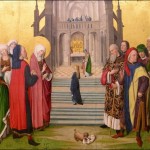
Eternal Father,
we honor the holiness and glory of the Virgin Mary.
May her prayers bring us
the fullness of your life and love.
We ask this through our Lord Jesus Christ, your Son, who
lives and reigns with You and the Holy Spirit,
one God, for ever and ever. Amen.
First Reading: Zechariah 2:14-17 (2:10-13 RSV)
Sing and rejoice, O daughter of Zion; for lo, I come and I will dwell in the midst of you, says the Lord. And many nations shall join themselves to the Lord in that day, and shall be My people; and I will dwell in the midst of you, and you shall know that the Lord of hosts has sent Me to you. And the Lord will inherit Judah as His portion in the holy land, and will again choose Jerusalem.”
Be silent, all flesh, before the Lord; for He has roused Himself from His holy dwelling.
Gospel Reading: Matthew 12:46-50
While He was still speaking to the people, behold, His mother and His brethren stood outside, asking to speak to Him. But He replied to the man who told Him, “Who is My mother, and who are My brethren?” And stretching out His hand toward His disciples, He said, “Here are My mother and My brethren! For whoever does the will of My Father in heaven is My brother, and sister, and mother.”
Tags: blessed virgin mary, catholic, catholic podcast, catholic prayer, cathollc spirituality, holy spirit, Holy Theotokos, prayer, presentation of the blessed virgin mary, Roman Catholic, silence, The Presentation of the Blessed Virgin Mary
This entry was posted on Monday, November 21st, 2011 at 12:07 am
You can follow any responses to this entry through the RSS 2.0 feed.
St. Bruno was one of the most exceptional scholars, teachers, prayer warriors of his time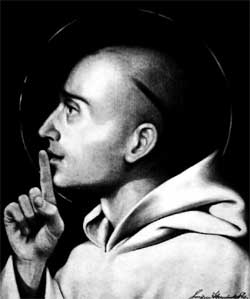 : “…a prudent man whose word was rich in meaning.” I think the key was the gift of great humility. He must have been very close to Our Lady.
: “…a prudent man whose word was rich in meaning.” I think the key was the gift of great humility. He must have been very close to Our Lady.
The Order founded by Bruno — the Carthusians — is one of the strictest in the Church. Carthusians follow the Rule of St. Benedict, but accord it a most austere interpretation; there is perpetual silence and complete abstinence from flesh meat (only bread, legumes, and water are taken for nourishment). Bruno sought to revive the ancient eremitical (hermit)Â way of life. His Order enjoys the distinction of never becoming unfaithful to the spirit of its founder, never needing a reform.
Quote:
Rejoice, my dearest brothers, because you are blessed and because of the bountiful hand of God’s grace upon you. Rejoice, because you have escaped the various dangers and shipwrecks of the stormy world. Rejoice because you have reached the quiet and safe anchorage of a secret harbor. Many wish to come into this port, and many make great efforts to do so, yet do not achieve it. Indeed many, after reaching it, have been thrust out, since it was not granted them from above. By your work you show what you love and what you know. When you observe true obedience with prudence and enthusiasm, it is clear that you wisely pick the most delightful and nourishing fruit of divine Scripture.
~from a letter by Saint Bruno to the Carthusians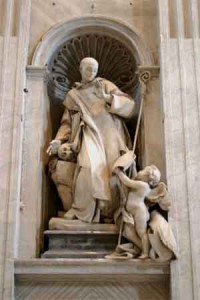
Collect:
Father,
you called St. Bruno to serve you in solitude.
In answer to his prayers
help us to remain faithful to you.
amid the changes of this world.
We ask this through our Lord Jesus Christ, your Son,
who lives and reigns with you and the Holy Spirit,
one God, forever and ever. Amen.
St. Bruno is the patron of diabolic possession. St. Bruno, confessor, ecclesiastical writer, and founder of the Carthusian Order. He was born at Cologne about the year 1030; died October 6, 1101.
Tags: Carthusians, catholic, catholic podcast, catholic prayer, cathollc spirituality, humility, prayer, silence, st bruno
This entry was posted on Thursday, October 6th, 2011 at 8:37 am
You can follow any responses to this entry through the RSS 2.0 feed.
No surprise to readers and listeners of Discerning Hearts (especially those who follow the teachings of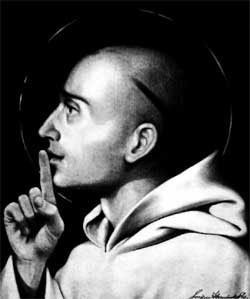 Deacon James Keating)….”Silence is Golden”! Pope Benedict XVI has chosen “Silence and Word” as the theme for World Communication Day.
Deacon James Keating)….”Silence is Golden”! Pope Benedict XVI has chosen “Silence and Word” as the theme for World Communication Day.
Don’t you just love it…earlier we heard from Vatican Radio that the symposium of former theological students of the Holy Father that met with him this past summer reflected on what exactly is meant by the “new evangelizaation”. As reported it ultimately comes down to HUMILITY Â (click here to read and to listen to more on this report).
“Silence and Word” is the path to humility? It works for me!
From Vatican Radio:
[powerpress = Vatican-Radio]
The Pontifical Council for Social Communications on Thursday announced the theme for the 2012 World Communications Day:Â Silence and Word: path of evangelization. Below is the text of a communique from the Council explaining the theme in context:
Statement from the Pontifical Council for Social Communications on the theme for the 2012 World Communications Day
The extra-ordinarily varied nature of the contribution of modern communications to society highlights the need for a value which, on first consideration, might seem to stand in contradistinction to it.
Silence, in fact, is the central theme for the next World Communications Day Message: Silence and Word: path of evangelization. In the thought of Pope Benedict XVI, silence is not presented simply as an antidote to the constant and unstoppable flow of information that characterizes society today but rather as a factor that is necessary for its integration.
Silence, precisely because it favors habits of discernment and reflection, can in fact be seen primarily as a means of welcoming the word. We ought not to think in terms of a dualism, but of the complementary nature of two elements which when they are held in balance serve to enrich the value of communication and which make it a key factor that can serve the new evangelization.
It is clearly the desire of the Holy Father to associate the theme of the next World Communications Day with the celebration of the forthcoming Synod of Bishops which will have as its own theme: The New Evangelization for the Transmission of the Christian Faith.
World Communications Day, the only worldwide celebration called for by the Second Vatican Council (Inter Mirifica, 1963), is celebrated in most countries, on the recommendation of the bishops of the world, on the Sunday before Pentecost (in 2012, May 20).
The Holy Father’s message for World Communications Day is traditionally published in
conjunction with the Memorial of St. Francis de Sales, patron of writers (January 24).
Tags: catholic, catholic podcast, catholic prayer, cathollc spirituality, pope benedict xvi, prayer, silence
This entry was posted on Thursday, September 29th, 2011 at 2:50 pm
You can follow any responses to this entry through the RSS 2.0 feed.
Special 6 – Interior Silence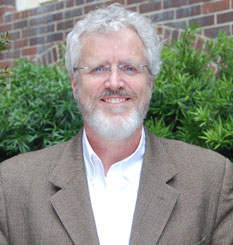
[powerpress]
Interior Silence, in particular in the liturgy, is reflected upon by Deacon Keating.  He leads a meditation during a prayer service with priests, on the letter “Spiritual Formation in the Seminaries”  which calls for spiritual silence to be at the core of seminary formation.  Priests are called to be teachers of prayer and directors of spirituality.  Why silence is so vitally important and what are the blocks  to prevent it…the cynicism that reacts to the ideal. The role of discernment and diminishing interference.  If priests have trouble with this, imagine the challenge for the laity.
Deacon Keating is the Director of Theological Formation for the Institute for Priestly Formation at Creighton University.
Click here for more Deacon James Keating
Tags: catholic, catholic podcast, catholic prayer, cathollc spirituality, silence
This entry was posted on Tuesday, September 27th, 2011 at 9:22 am
You can follow any responses to this entry through the RSS 2.0 feed.




